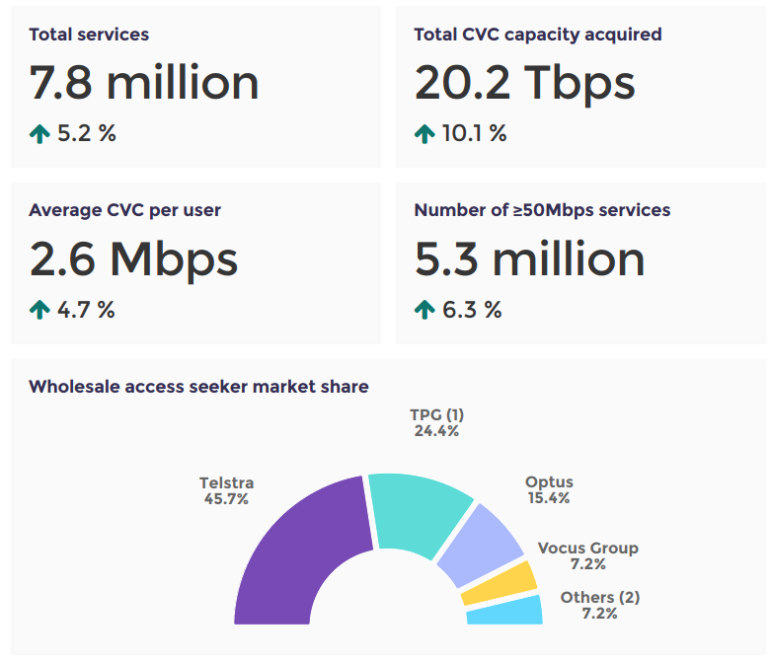Even though they only make up a small portion of its customer base, there has been quite the shift in how users are connecting to NBN on plans offering speeds at or in excess of 100Mbps.
In the latest edition of the ACCC’s NBN Wholesale Market Indicators Report, almost 43,000 users moved away from 100/40Mbps during the quarter. At the same time, over 113,000 users moved onto NBN’s 100/20Mbps plan that is labelled as Home Fast, over 3,000 took up the 250/25Mbps Home Superfast plan, and the user base of those on 500-1000Mbps/50Mbps plans increased by 2,600.
This is a significant increase on the 45,000 customers that took up the new Home plans in the prior instalment of the report.
Not to be left out entirely, NBN’s older fast plans also saw some growth, with 379 extra connections on 250/100Mbps plans, an increase of 90 customers on 500/200Mbps, and 38 extra lines signed up to a 1000/400Mbps plan.
“It is good to see a continuing increase in the number of products on offer, giving savvy consumers a range of differing plans to choose from,” ACCC chair Rod Sims said.
Over the quarter, 387,410 new services were connected, with the total number of 12/1Mbps connections falling by 25,000, while 86,000 additional lines took up 25/5Mbps, and the 50Mbps plan total increased by 234,000.
Following the merger of TPG and Vodafone, this is the first report that has combined Vodafone’s NBN market share with TPG. Vodafone’s NBN connections accounted for approximately 2% of the market.
Telstra’s market share, meanwhile, was slightly down to 45.7%, followed by TPG Telecom with 24.4%, Optus had 15.4% of the market, Vocus had 7.2%, and cruising along with just under 4% market share was the recently listed Aussie Broadband.
The ACCC added the total capacity (CVC) purchased by retails increased by 10% to just over 20Tbps.
“CVC per user also increased over the quarter from 2.47Mbps to 2.59Mbps, a near 5% increase since last quarter,” the ACCC said.
“The latest CVC figures reflect NBN Co’s extension of its temporary offer of additional 40% CVC capacity to RSPs, at no additional cost, in response to the COVID pandemic.”
NBN said last month it would dial down its CVC boost over the coming two months.
Using a new baseline that is calculated as the difference between a retailer’s capacity usage at the beginning of the September billing period compared to that in February, NBN will offer retailers 75% of that difference in December, and 50% in January next year.
“NBN Co’s tapering of COVID-19 CVC Credit offer to internet retailers recognises that peak data demand is returning to normal forecast levels of growth,” the company said at the time.



